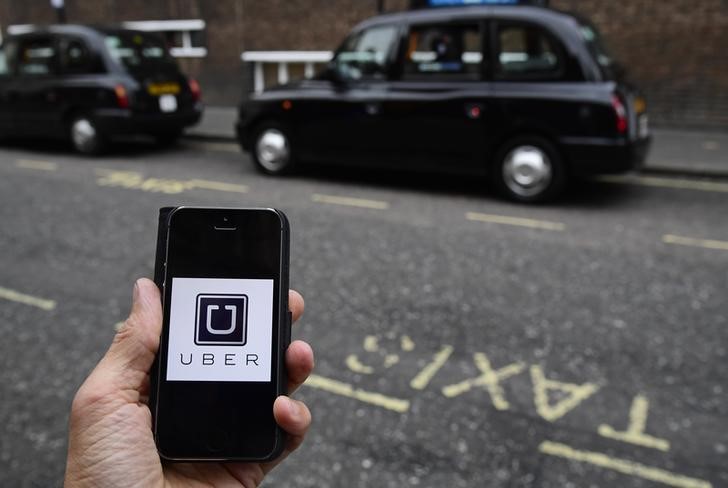STOCKHOLM (Reuters) – Sweden proposed rule changes for its taxis on Wednesday that may help ride-hailing services like Uber Technologies in the long term, but also recommended that profit-making ride-sharing should be illegal. A government-appointed commission said that Sweden should allow taxis to operate without meters, making it easier for drivers to use their own cars – a development that has helped firms like Uber undercut traditional services in other countries. Uber, which has faced setbacks in other parts of Europe, already offers taxi services in Sweden, but has to comply with the same regulations as other market players.
It has faced protests, bans and legal action around the world including in the United States and much of Europe as its business model disrupts existing taxi services.
Uber is already valued at more than $60 billion and its investors include Goldman Sachs The Swedish commission’s proposals would only allow use of unmetered cars if they are pre-booked and connected to a booking hub, which needs to collect data and make it available to the tax authorities. It also recommended that profit-making ride-sharing services, like UberPOP – recently suspended in Sweden – should be illegal.
“This confirms that ride-sharing is different from driving other people at a charge,” Sweden’s infrastructure minister Anna Johansson told a press conference.
Sweden, which deregulated its taxi sector almost three decades ago, decided last year to look at how to adapt its taxi and ride-sharing regulations.
Uber, which launched in Europe five years ago, has faced opposition from regular taxi companies and some local authorities who say it creates unfair competition because it is not bound by strict local licensing and safety rules. “Governments the world over have tried for decades to encourage ride-sharing,” Martin Hedevag, General Manager Uber Sweden, said in response to the Swedish commission’s proposals. “What was lacking was the technology to connect people, and an incentive for them to share their journey.” “The technology exists today but these proposals continue to prevent the real benefits of ride-sharing on a scale which can contribute to easing some of the greatest challenges facing our cities today – congestion and pollution – by helping get more people in fewer cars.” Uber is currently seeking to convince Europe’s top court that it is a digital service, not a transport company, in a case that could determine whether app-based startups should be exempt from strict laws meant for regular companies. It has been forced to suspend its UberPOP service, which relies on non-professional drivers using their own vehicles, in Sweden, Germany, France, Italy, Spain and Belgium.
(Reporting by Helena Soderpalm; Editing by Ruth Pitchford and Jane Merriman)
Sweden proposes ban on ride-sharing services that make profits

Reuters
















